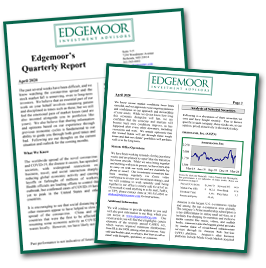Financial Planning
Our CFP® professionals, Tim Coughlin, Gay Truscott and Steven LaRosa, lead our financial planning practice, through which we provide comprehensive planning services to our investment management clients. We begin by helping our clients identify their financial goals, and then we evaluate their current financial position and project their future financial needs based on these goals and objectives. We often work closely with a client’s existing tax, estate, and insurance advisors, or make referrals to professionals with whom we have worked closely in these areas.

What Is a Financial Plan and Why Is It Important?
A financial plan is important at any stage of life, whether you are a young professional looking to buy your first home, a family planning for college for your children, or someone at or close to retirement wondering, “When can I afford to retire?” All of these are important goals and considerations that require careful planning.
There are five basic benefits of a financial plan:
- Identifying your goals and developing strategies to achieve them
- Managing risk
- Protecting your assets
- Establishing financial benchmarks
- Creating a framework for discussion and ongoing evaluation
Because, as we CFP®s like to say, “Goals that are identified and planned for are more likely to be achieved.”

What are the Steps to the Financial Planning Process?
We have a Client Questionnaire to help you get started. We can also give you online access to our MoneyGuide Pro financial planning software so you can link your bank, brokerage, and retirement accounts automatically to our system.
We will work with you to help develop and prioritize your personal and financial goals, including planning for retirement, developing legacy and estate goals, saving for education, planning for long-term health needs, and budgeting and downsizing.
We will analyze your current financial resources, including taxable investment accounts and tax-advantaged retirement accounts, trusts, real estate, and insurance, to get a comprehensive picture of your financial position. We will also review liabilities such as mortgage and other debt and assess your risk protection by reviewing levels and types of insurance.
Our financial planning software can run a myriad of scenarios to test our assumptions and measure the probability of success in meeting your financial and lifestyle goals. We can run scenarios which test the impact of such questions as:
- What if I retire earlier?
- Should I be saving more?
- What if college costs more than I anticipate?
- What if my investment returns are lower than expected?
- When is the ideal time to start taking Social Security?
We will review the plan conclusions and recommendations with you and together set a timeline to execute the strategies developed. We can also assist you with referrals to other professionals, such as estate planning attorneys, insurance experts, and accountants who can help implement certain elements of your plan.
We will meet together at least annually to review your plan and measure your progress toward meeting your financial goals, and we can make changes to your plan as needed or as your life circumstances change. You will also be able to access and review your plan online at any time. We like to refer to a financial plan as a living, breathing document that is always a work in progress.
This information should not be considered investment advice or a recommendation to buy or sell a particular security. The opinions expressed herein are those of Edgemoor Investment Advisors, Inc. (Edgemoor) and are subject to change without notice.
MEMBERS OF:


What Is a Financial Plan and Why Is It Important?
Our approach to financial planning is guided by the Ten Fundamentals of Financial Planning, an article written by our own Tim Coughlin, CFP®, which reviews what we believe to be the essential principles of financial and investment management. We use these fundamentals every day with our clients, and we urge everyone to review and make use of them.




